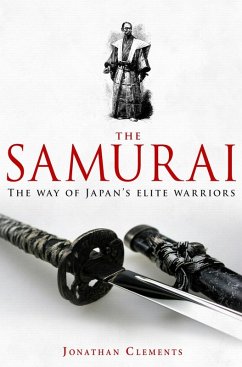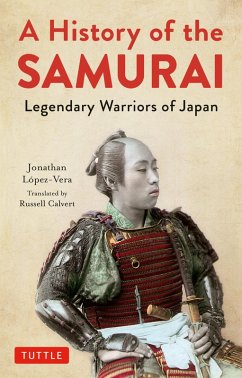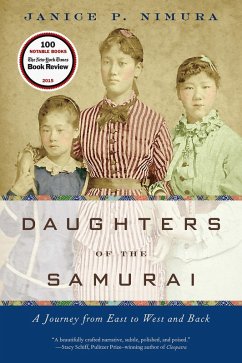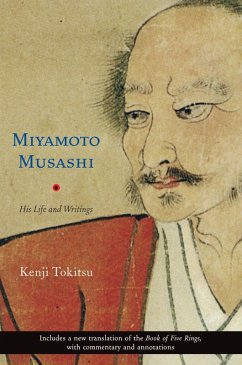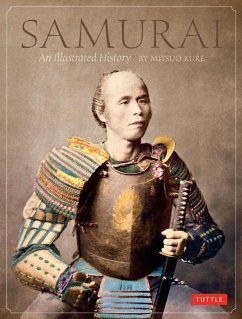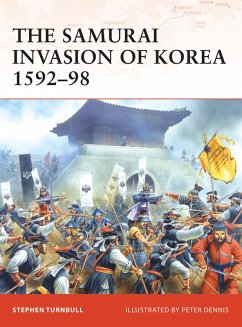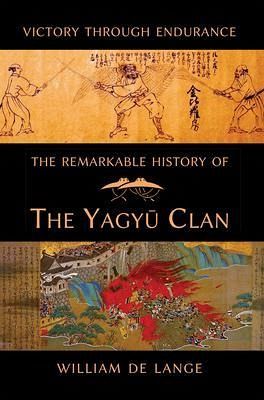
The Remarkable History of the Yagyu Clan (eBook, ePUB)
Versandkostenfrei!
Sofort per Download lieferbar
7,99 €
inkl. MwSt.
Weitere Ausgaben:

PAYBACK Punkte
4 °P sammeln!
This is the true story of the eventful history of the famous Yagyu clan-a story that began during the early heady days of the Genko Rebellion (1331-33), when emperor Go-Daigo sought to restore power to the throne with the support of the Yagyu and other loyal clans. It follows their campaigns on behalf of Go-Daigo's southern court during the Northern and Southern Courts period (1334-1392), and their long and hard struggle to retain their independence when the country rapidly descended into anarchy in the wake of the Onin Rebellion (1467-77).This first full Yagyu history in the English language ...
This is the true story of the eventful history of the famous Yagyu clan-a story that began during the early heady days of the Genko Rebellion (1331-33), when emperor Go-Daigo sought to restore power to the throne with the support of the Yagyu and other loyal clans. It follows their campaigns on behalf of Go-Daigo's southern court during the Northern and Southern Courts period (1334-1392), and their long and hard struggle to retain their independence when the country rapidly descended into anarchy in the wake of the Onin Rebellion (1467-77).
This first full Yagyu history in the English language recounts how, through a succession of misfortunes beyond their control, the Yagyu clan first lost its independence, then its castle and domains, until finally its members were thrown upon the mercy of a local temple. Yet it was in the very depth of those bleak and desperate years, that its leader, Yagyu Muneyoshi, discovered his true strength and began his clan's remarkable recovery-a recovery crowned with the ascendancy of his son, Munenori, to the exalted rank of Daimyo.
It is perhaps no coincidence that the two Chinese characters that make up the name of Yagyu stand for the willow tree and life, or the giving of birth, for both seem to sum up perfectly the particular characteristics that helped propel this ancient clan to such exalted heights. Like the pliable willow tree, it was their resilience in the face of irresistible forces that enabled the Yagyu to outweather the raging storms of fortune and remain standing, alive and well, their spirit intact. In doing so, the Yagyu gave birth to an art of fencing that has survived for more than five centuries. Among the countless schools of swordsmanship brought forth by Japan's feudal era the Yagyu Shinkage-ryu still stands out for its sheer continuity.
This first full Yagyu history in the English language recounts how, through a succession of misfortunes beyond their control, the Yagyu clan first lost its independence, then its castle and domains, until finally its members were thrown upon the mercy of a local temple. Yet it was in the very depth of those bleak and desperate years, that its leader, Yagyu Muneyoshi, discovered his true strength and began his clan's remarkable recovery-a recovery crowned with the ascendancy of his son, Munenori, to the exalted rank of Daimyo.
It is perhaps no coincidence that the two Chinese characters that make up the name of Yagyu stand for the willow tree and life, or the giving of birth, for both seem to sum up perfectly the particular characteristics that helped propel this ancient clan to such exalted heights. Like the pliable willow tree, it was their resilience in the face of irresistible forces that enabled the Yagyu to outweather the raging storms of fortune and remain standing, alive and well, their spirit intact. In doing so, the Yagyu gave birth to an art of fencing that has survived for more than five centuries. Among the countless schools of swordsmanship brought forth by Japan's feudal era the Yagyu Shinkage-ryu still stands out for its sheer continuity.
Dieser Download kann aus rechtlichen Gründen nur mit Rechnungsadresse in A, D ausgeliefert werden.







